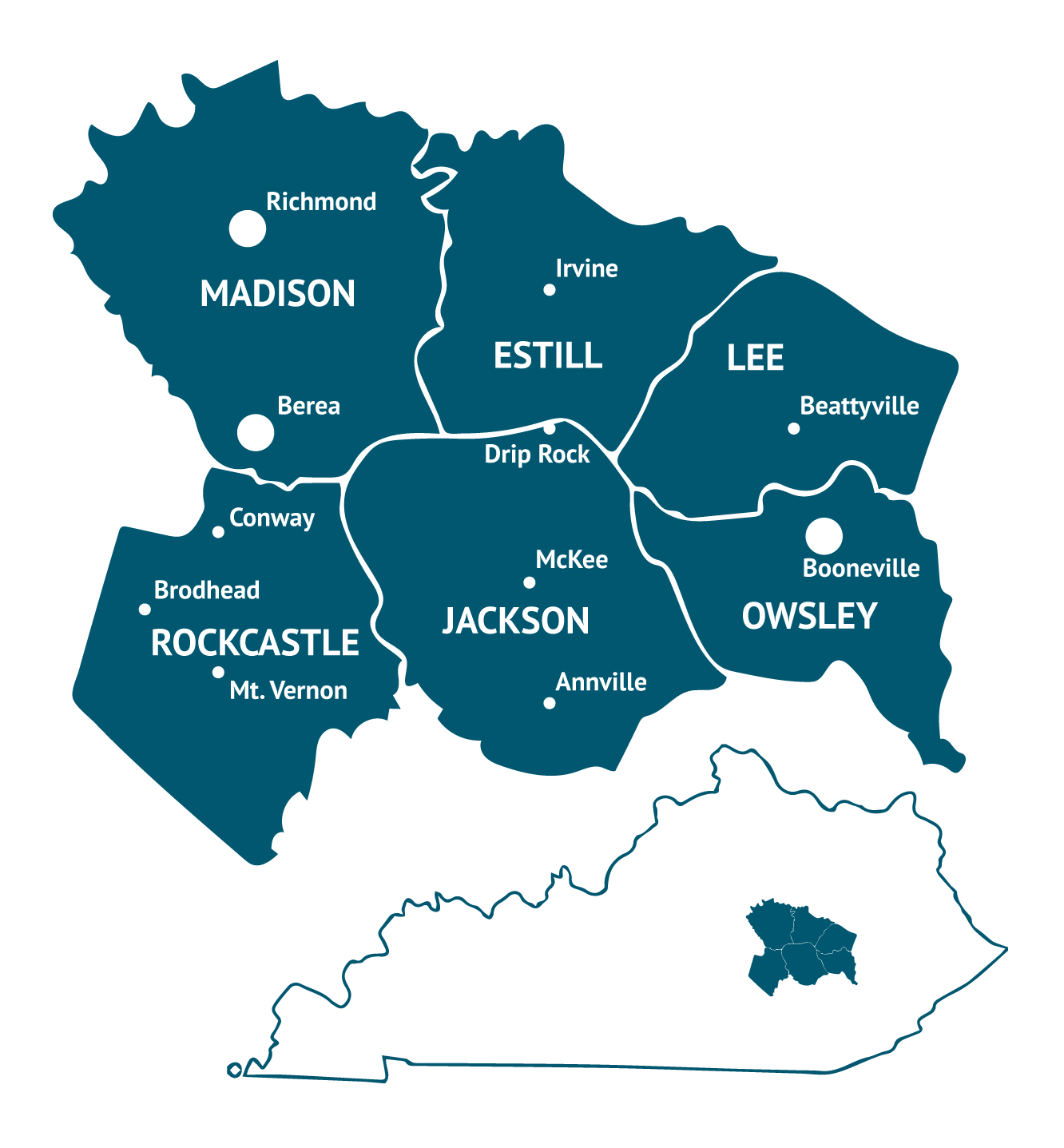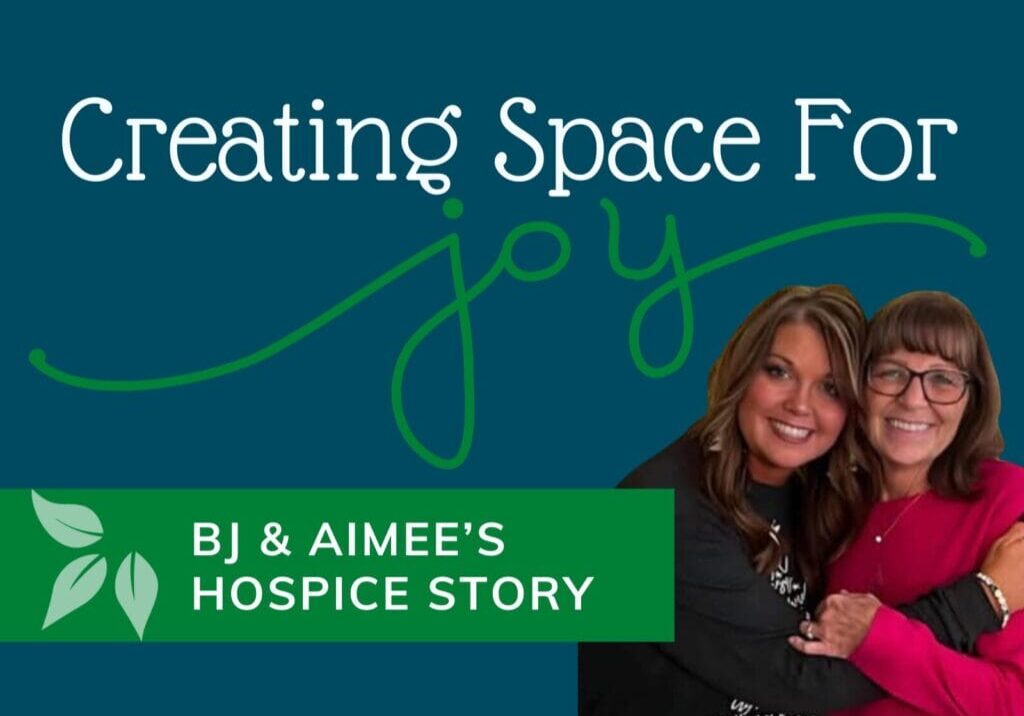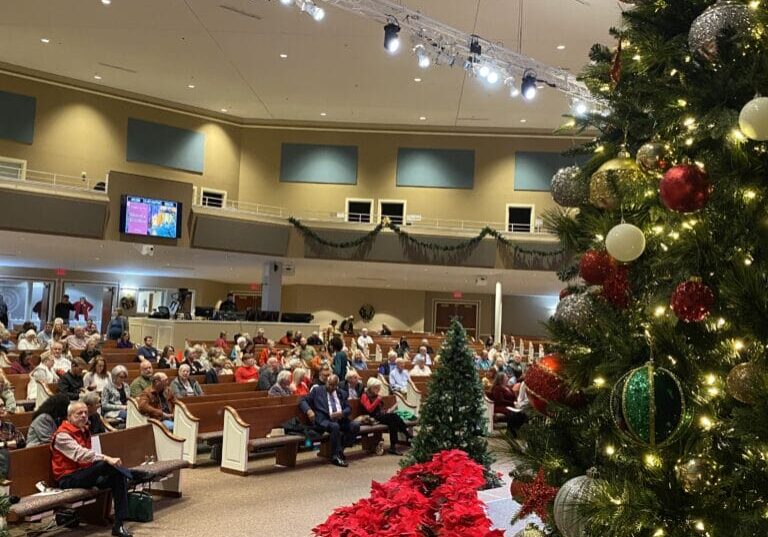Our stories about meaningful experiences are written as they unfold. Therefore, most stories are in the present tense. Some of the patients in these stories are no longer with us. They, and their families, gave us permission to share their experience with you. For those who have since passed, we share these in their memories with deep appreciation for what they have taught us about life and living.
It’s not surprising many hospice patients turn their thoughts to family, family traditions, and even childhood.
That was the case for Alejo Ramirez, a Texas native who lived in Kentucky for more than 30 years. His thoughts often turned to his birthplace and to family traditions. In particular, he told his Hospice Care Plus team about the authentic, homemade, corn-husk tamales
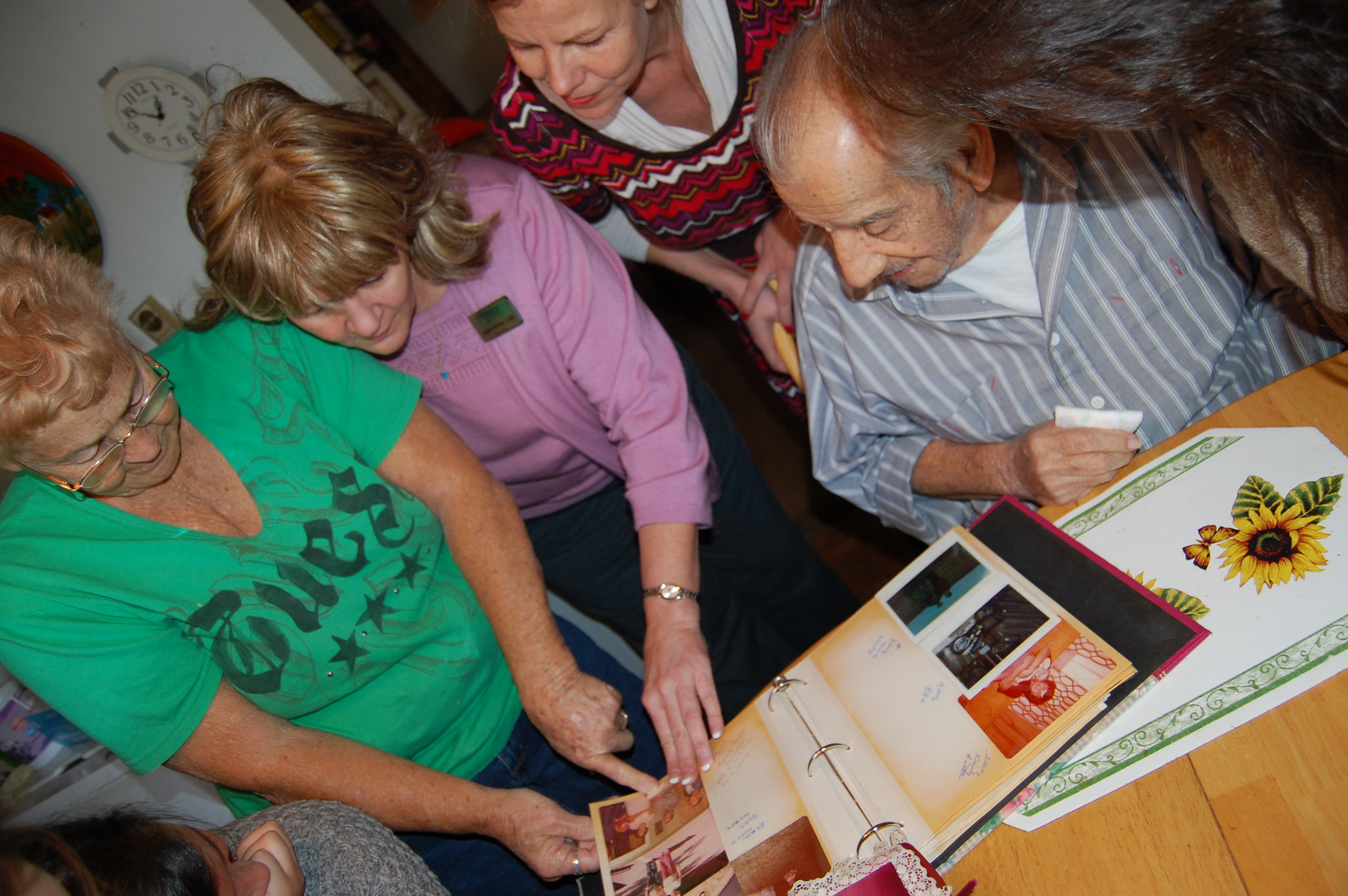
Mr. Ramirez looks over old photos after his special meal.
his mother used to make.
“Mr. Ramirez talked about these tamales regularly,” says Jackie McGee, his hospice social worker. “He was looking for a way to find them locally, but, living in far southeastern Kentucky, it was a challenge. He even called to ask different companies in other states if they could ship them to him, but he had no luck. Everyone said that tamales would deteriorate long before they arrived.”
Jackie and the rest of the hospice team, including Jodi Neal, the primary nurse, and Sally Iseral-Shepherd, his chaplain, had a feeling that what Mr. Ramirez really wanted was to “taste home again.”
“It seemed very important to him,” says Jodi. “And we felt it was a quality of life issue. It was about so much more than tamales; it was about remembering his childhood, missing his birthplace and his culture. We felt he needed this.”

Giving a big thumbs-up after eating nearly every bite.
Mr. Ramirez never asked the team to find him these tamales, of course. He just told us stories about trying to locate them. But the team, always reading between the lines for ways to make quality of life better, wanted to help.
Jackie, Jodi, Sally and the entire team went to work. They heard of a Mexico native now living in Berea, Ky., who could make the authentic tamale meal Mr. Ramirez craved so deeply. Her English was very limited, so a staff member’s friend volunteered to translate. Once the translator explained the situation, she agreed to shop for the ingredients and make a meal—enough for four people—so Mr. Ramirez could share it with others. The team all pitched in to fund the ingredients, gave the funds to the volunteer, and the meal was prepared. As soon as it was ready, the team loaded the food into their cars and drove it to his home in Booneville, just over an hour away.
The team spread the feast out onto the kitchen table and made a plate for Mr. Ramirez. Everything was lovingly made from scratch: the colorful guacamole; the rich, black refried beans; true Mexican rice boiled in tomato juice; and, of course, the pork-filled tamales wrapped in corn husks.
His wife had mentioned that Mr. Ramirez had eaten not long before we came, and that he
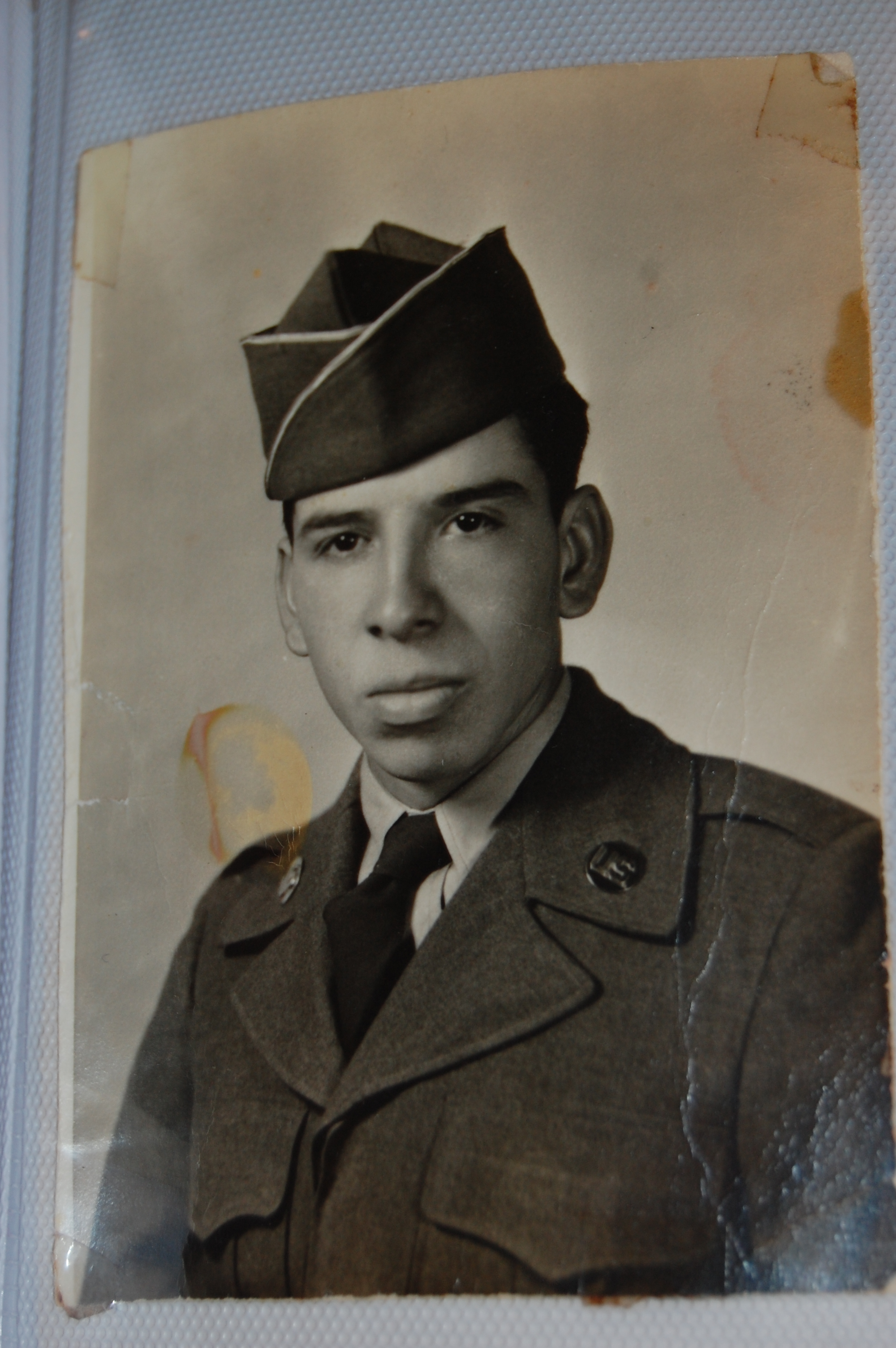
A young Mr. Ramirez during his years of military service.
probably wasn’t hungry. It went slowly at first—we asked if we could take a picture of him with his full plate, even if he didn’t want to eat just yet. He agreed. But, gradually, as the team filled their plates and sampled the wonderful food, Mr. Ramirez began to eat, too. He was so quiet as he did so, as if he wanted to carefully consider every bite. He barely said a word until the last bit of food was gone from his plate. Then the magic happened.
The familiar tastes and smells of his childhood brought back his loved ones—mother, father, brothers and sisters—and his memories. He spoke of watching his mother when she made tamales, more than 50 years ago. He described the sights and sounds as she ground the spices in a lava-rock bowl, or steamed the husks over a bucket full of boiling water. His wife brought photo albums to the table, and he told us more stories from his youth.
The team had been right. It wasn’t possible for Mr. Ramirez to physically get to Texas at this point in his life. Nor, of course, could he see his mother or father—both long gone. But he could get there and be able to be with them again through his senses—taste, smell, feel. And that was exactly what he needed to do….one more time.
“It was beautiful,” said Brenna Wallhausser, a hospice staff member who came along to take photos. “To see the food take him back that way, and to share this meal with him—it felt like a true honor. It felt like a celebration of him, his culture, and his life.”
How can you honor life during National Hospice & Palliative Care Month? Visit the #WeHonorLife campaign page to learn about all the ways you can help, from volunteering and shopping to helping us increase access to specialized care for the seriously ill and their families. Questions? Contact us at hospice@hospicecp.org or 859-986-1500 or visit our website.
Hospice Care Plus provides exceptional, compassionate care for individuals with serious and advanced illness; while honoring dignity, ensuring comfort, and celebrating life.
Our Service Area:
Our hospice home program serves you, wherever you call home, in the Kentucky counties of Estill, Jackson, Lee, Madison, Owsley, and Rockcastle.
Our inpatient care facility, the Compassionate Care Center, and administrative offices are located in Richmond, Kentucky.
Recent News:
News & Events
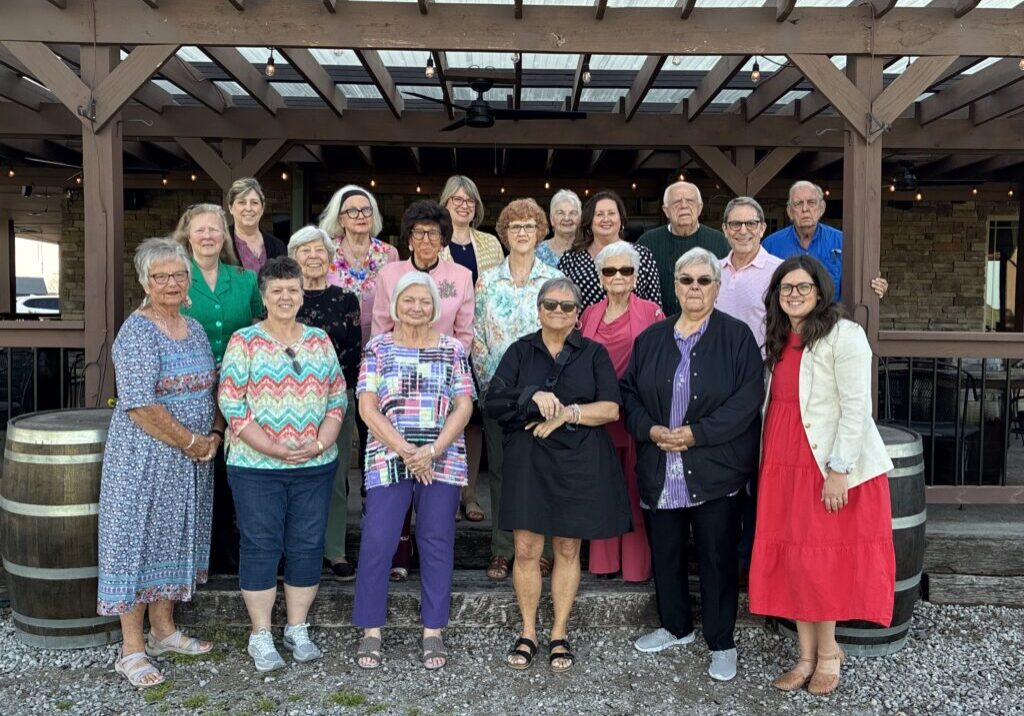
Join Us for New Volunteer Training on March 21
Hospice Care Plus is hosting an in-person training for new volunteers on Saturday, March 21, from 9:30 a.m. to 4:00 p.m. at the Madison County Public Library (507 W Main Street, Richmond, KY). Registration is required by March 18. Lunch and refreshments will be provided, along with plenty of breaks throughout the day. Participants will…

Hearts for Hospice Returns in February
Each February, local banks across our service region come together to share the love through Hearts for Hospice, an annual community fundraiser supporting Hospice Care Plus. When you stop by the lobby or drive-through of a participating bank, you’re invited to make a donation of $1 or more in exchange for a memorial heart. Donors…


